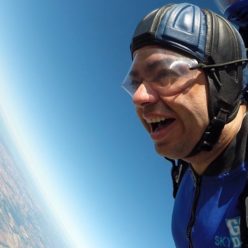I recently completed the NLP Practitioner course in London (the UK) and officially became an NLP Practitioner. I learnt NLP with the world renowned coaches Toby and Kate Mccartney. The course details and website is at http://www.tobyandkatemccartney.com/
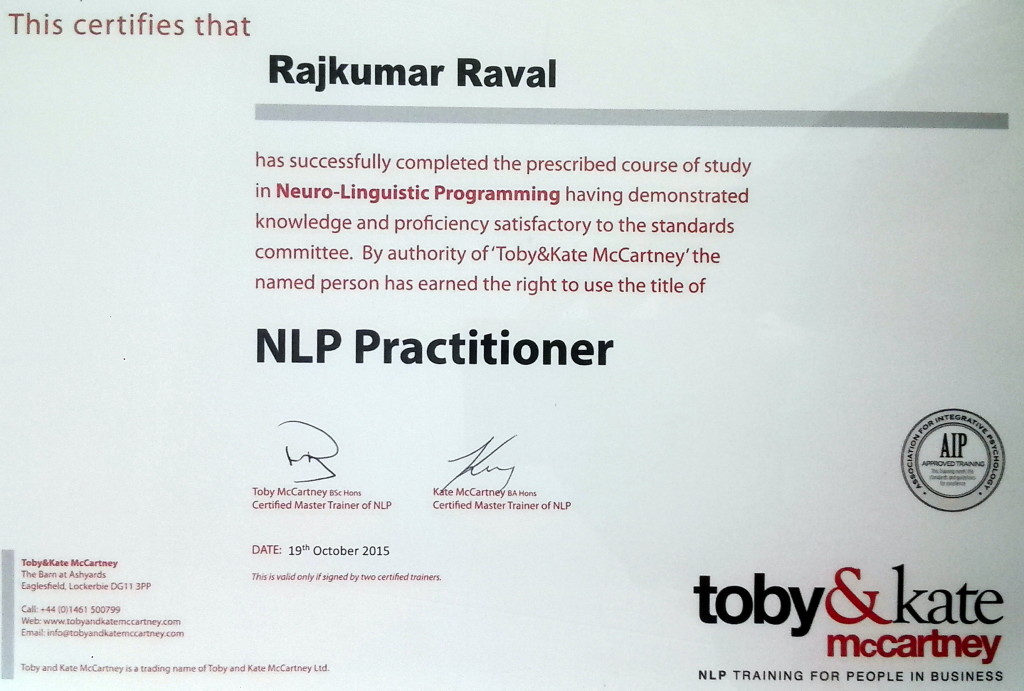
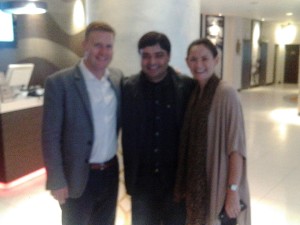
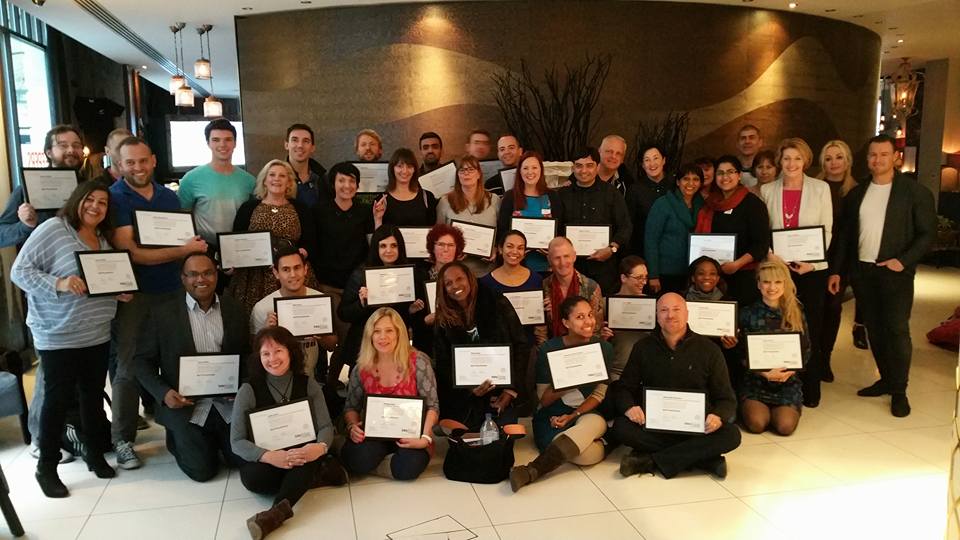
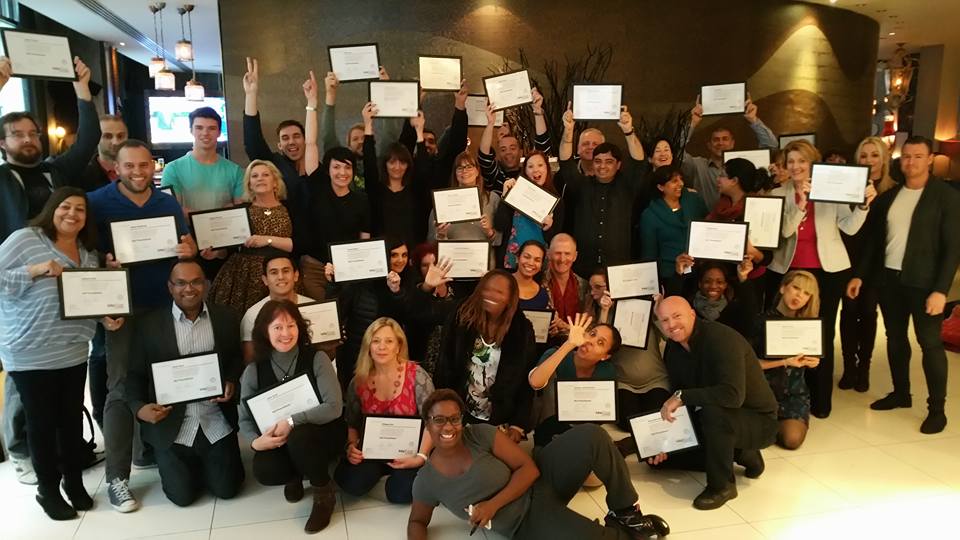
So What is NLP ?
- Visual
- Auditory
- Kinaesthetic
- Olfactory
- Gustatory
- Pictures
- Sounds
- Feelings
- Tastes
- Smells
- Words (Self Talk)
“Neuro-Linguistic Programming (NLP) is the process of creating models of excellence. Modelling is the complex activity of capturing in a learnable transferable code the differences that make a difference between an excellent performer and an average performer, between an excellent work team and an average one…” John Grinder – NLP Co-Creator
“At the heart of NLP is a wide range of methods and models suitable for any personal or business development. NLP offers a new, fast, flexible and dynamic approach to change. NLP is empowering, life changing and truly makes a difference…” Toby & Kate McCartney
Wikipedia says:
“Neuro-linguistic programming (NLP) is an approach to communication, personal development, and psychotherapy created by Richard Bandler and John Grinder in California, United States in the 1970s. Its creators claim a connection between the neurological processes (“neuro”), language (“linguistic”) and behavioral patterns learned through experience (“programming”) and that these can be changed to achieve specific goals in life”
Recent Scientific References on NLP
“The Effect of Neuro Linguistic Programming (NLP) Techniques on Young Iranian EFL Learners’ Motivation, Learning Improvement, and on Teacher’s Success“, Anita Lashkarian, Sima Sayadian in Procedia – Social and Behavioral Sciences Volume 199, 3 August 2015, Pages 510–516, The Proceedings of the 1st GlobELT Conference on Teaching and Learning English as an Additional Language
“The New Dimension of Educational Leadership – Modelling Excellence Through Neuro –Linguistic Programming Techniques“, Vlad Teodor Grosu, Emilia Florina Grosu, Tatiana Dobrescu, Procedia – Social and Behavioral Sciences, Volume 141, 25 August 2014, Pages 500–505, 4th World Conference on Learning Teaching and Educational Leadership (WCLTA-2013)
“Neuro-linguistic Programming based on the Concept of Modelling“, Emilia Florina Grosu, Vlad Teodor Grosu, Carmen Aneta Preja, Boros Balint Iuliana, in Procedia – Social and Behavioral Sciences, Volume 116, 21 February 2014, Pages 3693–3699, 5th World Conference on Educational Sciences
“Neuro-linguistic programming and application in treatment of phobias“, Mahishika Karunaratne, in Complementary Therapies in Clinical Practice, Volume 16, Issue 4, November 2010, Pages 203–207
“Applying ‘what works’ in psychology to enhancing examination success in schools: The potential contribution of NLP” in Thinking Skills and Creativity, Volume 4, Issue 3, December 2009, Pages 170–177, Applying Thinking Skills within Educational Settings and Beyond
“Sunflower therapy for children with specific learning difficulties (dyslexia): A randomised, controlled trial” in Complementary Therapies in Clinical Practice, Volume 13, Issue 1, February 2007, Pages 15–24
also at http://www.ncbi.nlm.nih.gov/pubmed/17210507
